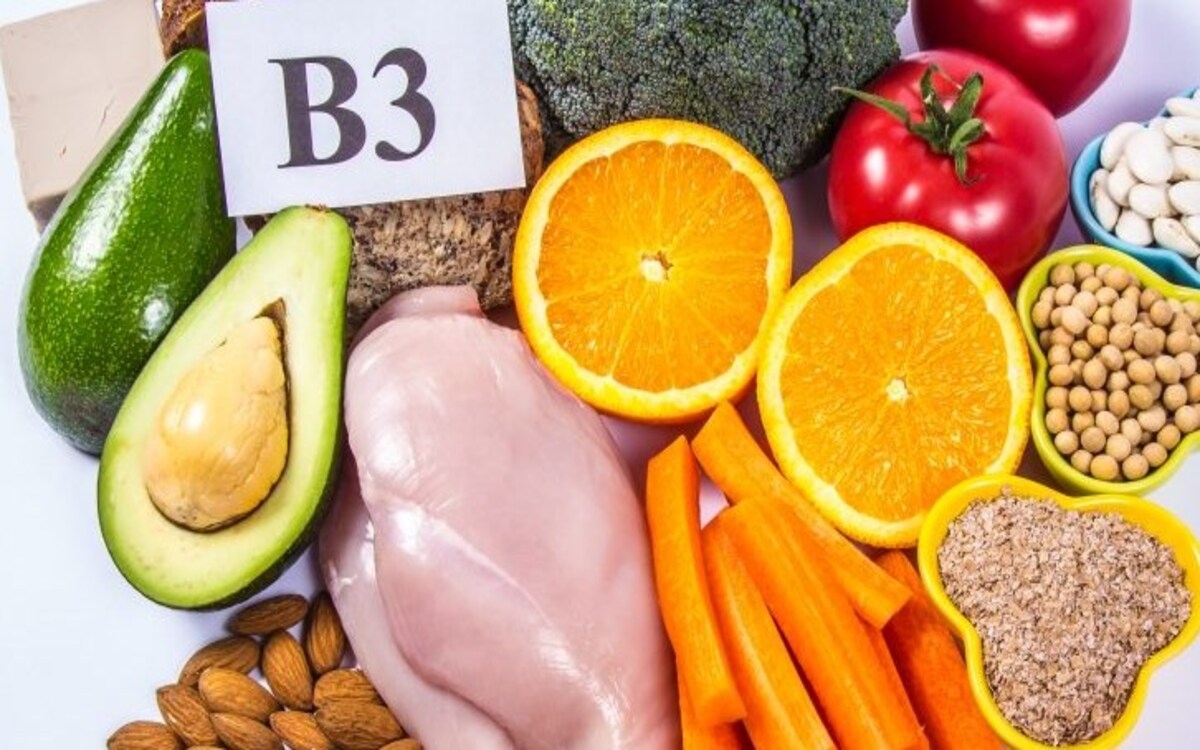Vitamin B6, also known as pyridoxine, is a water-soluble vitamin that plays a vital role in numerous bodily functions, including amino acid metabolism, neurotransmitter synthesis, and hemoglobin production. Ensuring adequate intake of this essential nutrient can have a profound impact on your overall health and well-being. This guide will provide you with practical tips and insights on how to naturally boost your vitamin B6 intake.
Understanding Vitamin B6
What is Vitamin B6
Vitamin B6 is one of the eight B vitamins that are crucial for maintaining proper body function. It is involved in over 100 enzyme reactions, mostly related to protein metabolism. The human body cannot produce vitamin B6, so it must be obtained from the diet or supplements.
Benefits of Vitamin B6
Vitamin B6 is essential for several reasons:
- Metabolism: It helps in the metabolism of proteins, fats, and carbohydrates, converting them into energy.
- Brain Health: It aids in the production of neurotransmitters such as serotonin, dopamine, and GABA, which are important for mood regulation.
- Hemoglobin Production: It is necessary for the production of hemoglobin, the protein in red blood cells that carries oxygen throughout the body.
- Immune Function: It supports the immune system by promoting the production of antibodies.
Sources of Vitamin B6
Animal-Based Sources
Animal products are excellent sources of vitamin B6:
- Poultry: Chicken and turkey are rich in vitamin B6.
- Fish: Salmon, tuna, and other fatty fish provide a good amount of this vitamin.
- Organ Meats: Liver and other organ meats are highly concentrated sources.
Plant-Based Sources
For those following a plant-based diet, there are several options:
- Legumes: Chickpeas, lentils, and beans are great plant-based sources of vitamin B6.
- Vegetables: Potatoes, sweet potatoes, and spinach contain significant amounts.
- Fruits: Bananas, avocados, and certain dried fruits like prunes and raisins are also good sources.
- Nuts and Seeds: Sunflower seeds and pistachios provide a healthy dose of vitamin B6.
Enhancing Absorption of Vitamin B6
Pair with Other Nutrients
Certain nutrients can enhance the absorption of vitamin B6:
- Magnesium: Consuming foods high in magnesium, like nuts, seeds, and leafy greens, can help improve vitamin B6 absorption.
- B-Complex Vitamins: B vitamins work synergistically, so consuming a balanced diet rich in all B vitamins can enhance overall absorption and utilization.
Cooking and Preparation Tips
The way you prepare your food can impact the vitamin B6 content:
- Minimize Overcooking: Vitamin B6 is sensitive to heat, so avoid overcooking foods to preserve their nutrient content.
- Steaming and Microwaving: These cooking methods help retain more vitamin B6 compared to boiling.
Lifestyle Tips for Boosting Vitamin B6 Intake
Balanced Diet
Maintaining a balanced diet is key:
- Variety: Include a variety of vitamin B6-rich foods in your diet to ensure you get enough.
- Whole Foods: Opt for whole, unprocessed foods whenever possible, as processing can reduce nutrient content.
Supplementation
In some cases, supplementation might be necessary:
- Consult a Healthcare Provider: Before starting any supplement regimen, it’s important to consult with a healthcare professional to determine your specific needs.
- Choose High-Quality Supplements: If you decide to take supplements, choose high-quality products from reputable brands.
FAQs About Vitamin B6
What are the symptoms of vitamin B6 deficiency?
Vitamin B6 deficiency can lead to symptoms such as anemia, skin rashes, cracks at the corners of the mouth, a swollen tongue, depression, confusion, and a weakened immune system.
How much vitamin B6 do I need daily?
The recommended daily intake varies by age, sex, and life stage. For adults, it’s typically around 1.3-2.0 mg per day. Consult with a healthcare provider for personalized recommendations.
Can I get too much vitamin B6 from food?
It’s unlikely to get too much vitamin B6 from food sources alone. However, high doses from supplements can lead to nerve damage over time. It’s important to stick to recommended doses.
Is vitamin B6 safe during pregnancy?
Yes, vitamin B6 is important during pregnancy for fetal brain development. Pregnant women should ensure they meet the recommended intake, usually around 1.9 mg per day, but should consult their healthcare provider.
What are the best vegetarian sources of vitamin B6?
Great vegetarian sources include chickpeas, potatoes, bananas, avocados, and fortified cereals.
Can vitamin B6 help with PMS symptoms?
Yes, vitamin B6 has been shown to help alleviate premenstrual syndrome (PMS) symptoms such as mood swings, irritability, and bloating.
How does vitamin B6 support brain health?
Vitamin B6 is involved in the production of neurotransmitters, which are chemicals that transmit signals in the brain. This helps regulate mood and cognitive function.
Are there any interactions between vitamin B6 and medications?
Certain medications, such as some anti-epileptic drugs and the tuberculosis medication isoniazid, can interfere with vitamin B6 metabolism. Always inform your healthcare provider about any supplements you are taking.
What are some easy ways to incorporate more vitamin B6 into my diet?
Adding vitamin B6-rich foods like chicken, fish, potatoes, bananas, and chickpeas to your meals can easily boost your intake. Smoothies with bananas and avocados are also a great option.
Can vitamin B6 improve immune function?
Yes, vitamin B6 supports the immune system by aiding in the production of antibodies and maintaining normal lymphocyte function, which are crucial for fighting infections.
Conclusion
Boosting your vitamin B6 intake naturally involves incorporating a variety of nutrient-rich foods into your diet, paying attention to food preparation methods, and considering supplementation when necessary. By understanding the importance of this vital nutrient and making informed dietary choices, you can support your overall health and well-being. Always remember to consult with a healthcare provider for personalized advice and recommendations.
- Upper Face Anti Wrinkle Treatment Near Shalford, Surrey - January 4, 2025
- Fire Play Fetish: Sensual Heat And Controlled Flames - January 2, 2025
- Skin Pen Microneedling Near Chobham, Surrey - January 2, 2025

